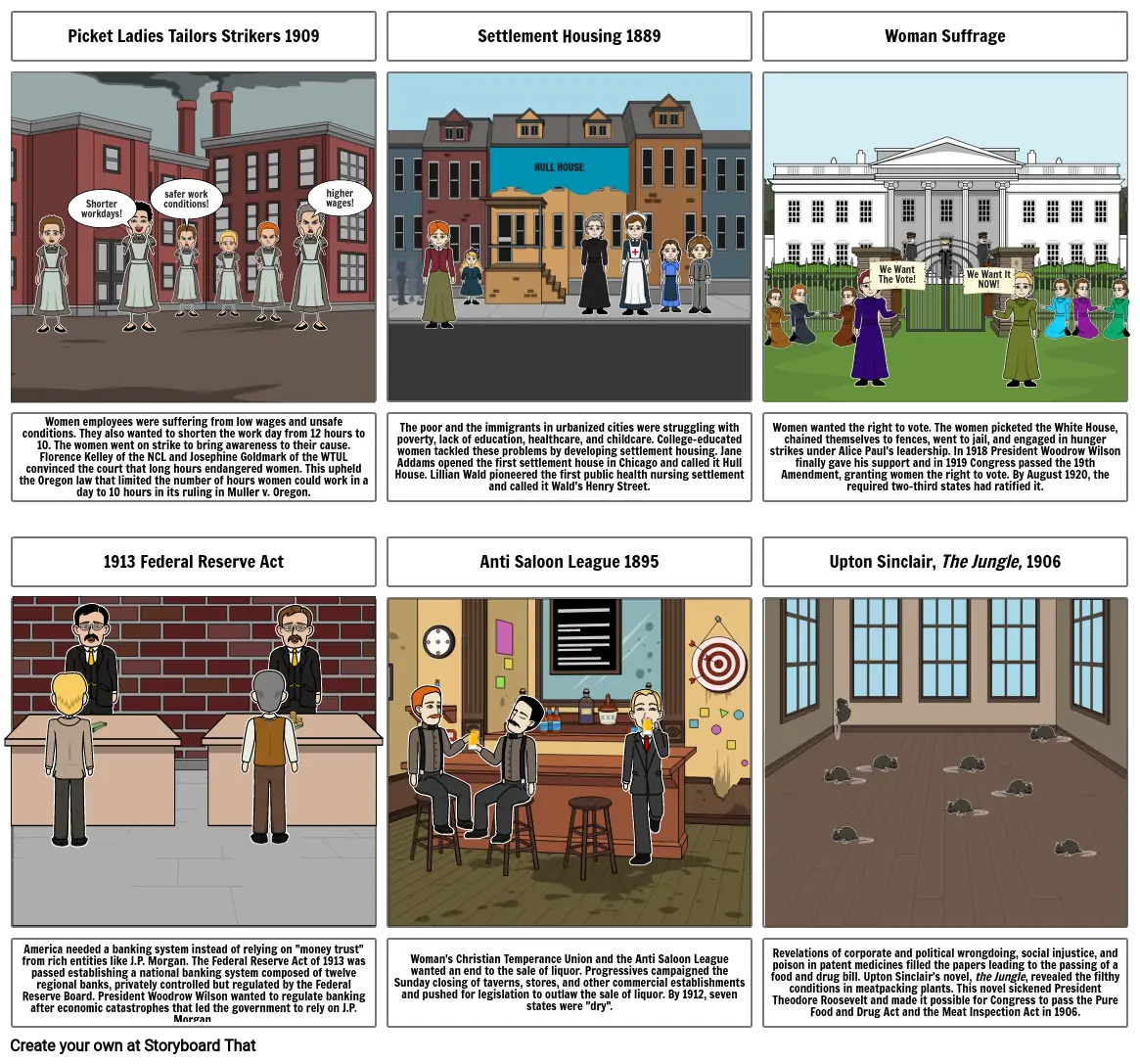Progressive Era Storyboard

Storyboard Tekst
- Picket Ladies Tailors Strikers 1909
- Shorter workdays!
- safer work conditions!
- higher wages!
- Settlement Housing 1889
- HULL HOUSE
- Woman Suffrage
- We Want The Vote!
- We Want It NOW!
- Women employees were suffering from low wages and unsafe conditions. They also wanted to shorten the work day from 12 hours to 10. The women went on strike to bring awareness to their cause. Florence Kelley of the NCL and Josephine Goldmark of the WTUL convinced the court that long hours endangered women. This upheld the Oregon law that limited the number of hours women could work in a day to 10 hours in its ruling in Muller v. Oregon.
- 1913 Federal Reserve Act
- The poor and the immigrants in urbanized cities were struggling with poverty, lack of education, healthcare, and childcare. College-educated women tackled these problems by developing settlement housing. Jane Addams opened the first settlement house in Chicago and called it Hull House. Lillian Wald pioneered the first public health nursing settlement and called it Wald's Henry Street.
- Anti Saloon League 1895
- Women wanted the right to vote. The women picketed the White House, chained themselves to fences, went to jail, and engaged in hunger strikes under Alice Paul's leadership. In 1918 President Woodrow Wilson finally gave his support and in 1919 Congress passed the 19th Amendment, granting women the right to vote. By August 1920, the required two-third states had ratified it.
- Upton Sinclair, The Jungle, 1906
- America needed a banking system instead of relying on "money trust" from rich entities like J.P. Morgan. The Federal Reserve Act of 1913 was passed establishing a national banking system composed of twelve regional banks, privately controlled but regulated by the Federal Reserve Board. President Woodrow Wilson wanted to regulate banking after economic catastrophes that led the government to rely on J.P. Morgan.
- Woman's Christian Temperance Union and the Anti Saloon League wanted an end to the sale of liquor. Progressives campaigned the Sunday closing of taverns, stores, and other commercial establishments and pushed for legislation to outlaw the sale of liquor. By 1912, seven states were "dry".
- Revelations of corporate and political wrongdoing, social injustice, and poison in patent medicines filled the papers leading to the passing of a food and drug bill. Upton Sinclair's novel, the Jungle, revealed the filthy conditions in meatpacking plants. This novel sickened President Theodore Roosevelt and made it possible for Congress to pass the Pure Food and Drug Act and the Meat Inspection Act in 1906.
Meer dan 30 miljoen storyboards gemaakt

